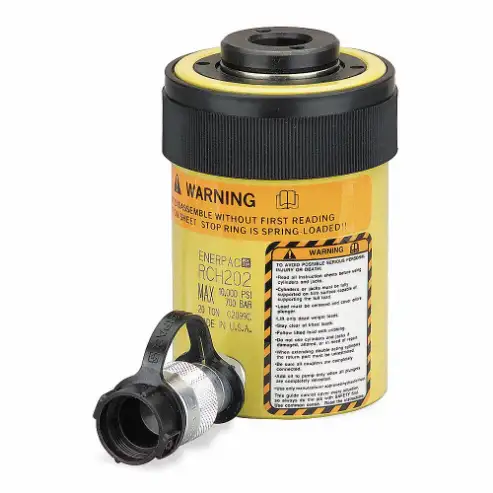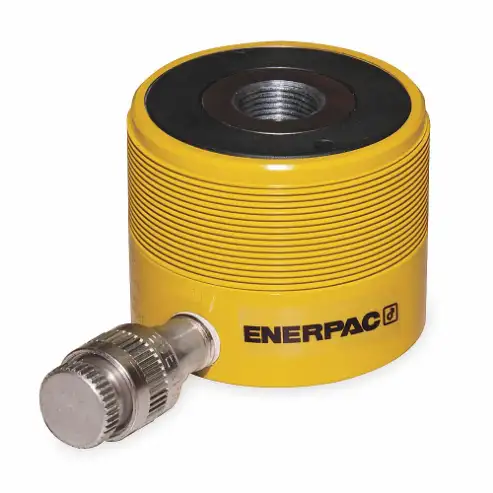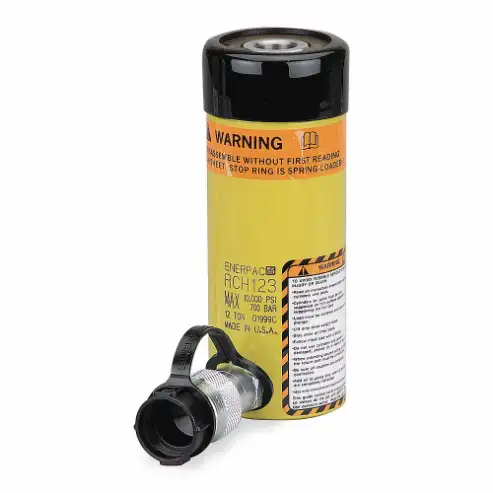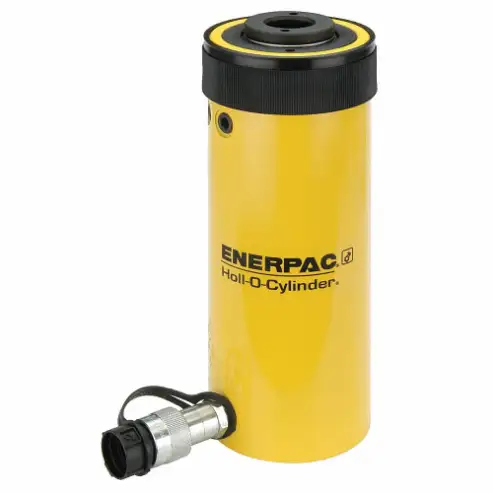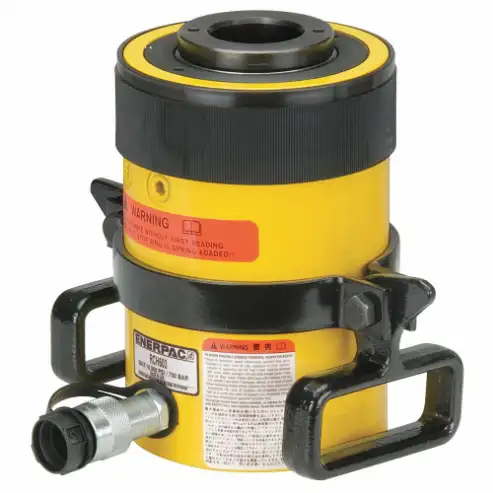Enerpac RCH-202 hydraulic cylinder is designed for testing, maintenance and tensioning applications. It is attached to a hydraulic pump for lifting heavy loads with minimal effort. This hydraulic cylinder is used in the aerospace, agriculture, oil & gas, mining and food production industries.
Features:
- Enerpac RCH-202 single-acting hydraulic cylinder features a hollow plunger design, allowing for pull, push or lifting applications.".
- This hydraulic cylinder can be installed on a fixture or standalone with hand or foot pumps, offering a maximum working pressure of 10000 psi.
- It features a dust cap that covers the end of the cylinder orifice to stop dirt, dust and debris from contaminating the unit.
- This hydraulic cylinder has collar threads to ensure easy fixturing.
Compatible Accessories:
- Enerpac CR400 Hydraulic Coupler: It is designed for use with the Enerpac RCH-202 hydraulic cylinder, enabling quick and secure hydraulic connections for efficient operation in various applications.
Frequently Asked Questions:
Q. What is the difference between single-acting and double-acting hydraulic pumps?
A.
- A single-acting hydraulic pump allows the hydraulic fluid to perform on just one side of the piston. It extends by pressure from the pump and then retracts by the weight of the load or an inbuilt spring.
- The double-acting hydraulic pump consists of two ports to allow expanding and retracting, separately.
Q. What is the function of collar threads?
A. Collar threads allow easy fixturing of cylinders with pumps.
Q. Is the product corrosion resistant?
A. Yes, the hydraulic cylinder has baked enamel finish for improved corrosion resistance and scratch protection.
Q. Which coupler is used in this hydraulic cylinder?
A. This cylinder uses a CR-400 coupler to provide a quick and secure connection.
Q. How to maintain Enerpac RCH-202 hydraulic cylinder?
A.
- To maintain Enerpac RCH-202 hydraulic cylinder, it is important to keep it clean and free from dirt and debris.
- Regularly inspect the cylinder for any signs of wear or damage and replace any worn-out parts.
- Lubricate the moving components as per the manufacturer's recommendations and store the cylinder in a dry and clean environment when not in use.
Q. How are hydraulic cylinders better than pneumatic cylinders?
A. A hydraulic cylinder uses hydraulic fluid to generate linear motion, which makes them more powerful and efficient than pneumatic cylinders.
 € EURChange Country
€ EURChange Country


